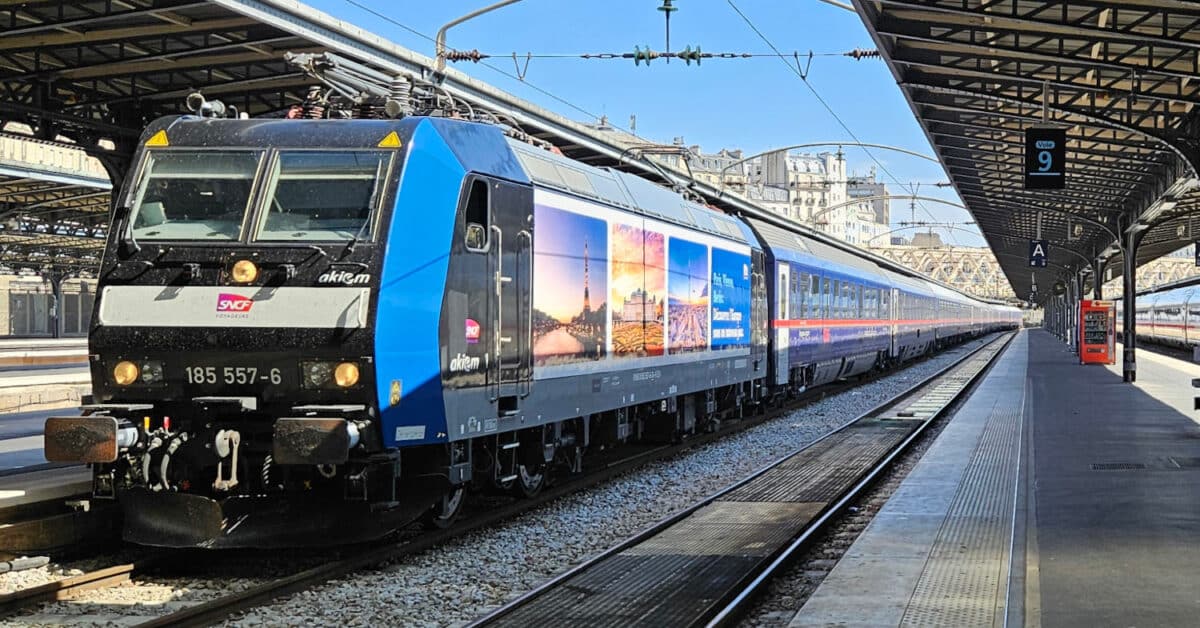The international night trains Paris-Berlin and Paris-Vienna, services launched in December 2023 and December 2021 respectively by SNCF and ÖBB, face a real risk of disappearance or severe service reduction from December 2025.
Despite high occupancy, the current offer is very limited. Although the original commitment was to offer one return train per day, there are only three weekly frequencies.
This low frequency creates difficulties in achieving profitability, coupled with almost non-existent promotion in France, where even Paris-Berlin tickets cannot be purchased through the SNCF Connect ticketing platform.
Trenvista Premium te lleva directo, sin anuncios que hagan descarrilar tu lectura ni tu paciencia.
Únete por sólo 35€ al año, disfruta de contenidos exclusivos, más ventajas y cancela cuando quieras.
★ Empieza ahora
French state threatens to withdraw subsidies
The causes threatening these services are manifold. Firstly, the French state is warning that it will withdraw the subsidies that allowed the launch of these lines.
The threat stems from what it considers to be a lack of real commercial commitment by SNCF Voyageurs. The operator representing France in this consortium does not show strong support and promotion of the product.
Moreover, European regulations on state aid for international services are so restrictive as to make it difficult to finance these night trains.
Meanwhile, the aviation sector continues to enjoy significant tax advantages and hidden subsidies, which unbalances competition between modes of transport in economic and environmental terms.
Several collectives propose solutions to keep both night trains operational
To prevent this disappearance, various platforms and collectives are suggesting a coordinated set of solutions.
The French collective Oui au train de nuit demands that SNCF Voyageurs fulfil the initial promise to establish two daily night trains (one to Berlin and one to Vienna), thus increasing capacity and achieving better profitability and reliability. They also demand that the French government maintain and renegotiate public subsidies, linking them to an increase in supply and accompanying them with a clear and determined strategy to boost low-emission rail transport. Finally, they call on the European Union to make the legal framework for state aid for international trains more flexible and to bring tax conditions into line with those of the airline sector. Especially as long as privileges such as fuel tax exemption continue to exist.
For its part, the European Back-on-Track network focuses on the bureaucratic and regulatory obstacles that limit the development of the night train network in Europe. Their proposals include coordination and infrastructure planning between countries to improve track access, as well as a clear commitment to the acquisition and renewal of adequate rolling stock. They also highlight the need for public administrations to compensate for the disadvantages of rail compared to aviation, with funding mechanisms and coherent policies to encourage sustainable cross-border mobility.
Likewise, other players in the sector, such as Midnight Trains, are planning to launch new night services from 2025 with an offer focused on on-board comfort and hotel style. This adds to the dynamic of the revival of this mode of transport in Europe. From Austria, ÖBB is leading this trend with a rapidly growing Nightjet network, showing that this formula can be viable and attractive if accompanied by strong political and commercial will.
In short, the survival and expansion of the Paris-Berlin and Paris-Vienna night trains depend on a determined push from their operators. A strong political will in France to maintain public subsidies conditional on service expansion, and Europeanist action to reform international funding rules and level the playing field with polluting aviation.
The mobilisation of citizens, with more than 200,000 signatures collected by Oui au train de nuit and planned actions such as demonstrations in Paris, adds essential social pressure to prevent the disappearance of a necessary travel alternative in the fight against climate change.
